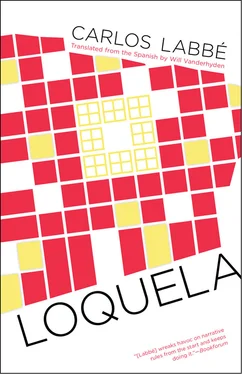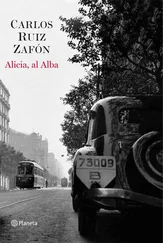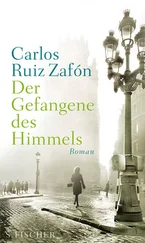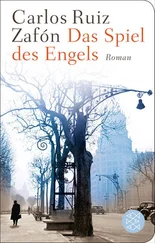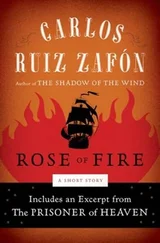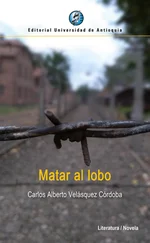Saturday night, during a party at S’s house, Alicia completely ignored me, and I couldn’t get into the game. We were strangers for hours, like I didn’t know she was following me with her eyes. At one point we found ourselves dancing face to face, and our movements seemed to correspond to two entirely different songs, then she disappeared toward the kitchen. A while later, I ran into her again: I was dancing enthusiastically and laughing with M; she was letting P wrap his arms around her. (Fear of the future, when she’ll be off traveling and not here.) She wasn’t the same either, struggling to show me that I wasn’t just another random guy on the university quad. She barely smiled, she didn’t ask how I was, even though she always does. (There’s no one else like her, I say, but I prove myself wrong if I go out on Providencia and count how many girls there are who’re just like J.) Before getting up off the bench in the quad (she’s always going somewhere), Alicia asks me to stop talking about the party: “Who are you, the one from Saturday or the one from Thursday?” I respond that today I am Carlos. She doesn’t laugh. I’m losing my spark, she said this herself. With a distinct quiver of her tight lips, Alicia tells me that tomorrow she is going to give me something, something I have to read as if it were more important than any of my unspoken obsessions, dedicate more time to it than to my thesis. I kiss my thumb and say: “a matter of life and death.” (She blinks, she hates me, I don’t want her to go, I want to spend my last days with Alicia.) She doesn’t find my comment funny and stands up.

August 17 th
I’ve decided that, for the moment, I’ve said enough. I should read, read, otherwise my own writing will become repetitive. Just like Alicia or J when you spend too much time with them: words begin to become excessive. All that’s left are the gestures, the looks, the hands, the mouth.
I have a large envelope containing two notebooks that belong to the albino girl, Violeta. Belonged, I should say, she was writing in them just before she was killed. One of the notebooks is green, the other is covered in wrapping paper. One of them contains paragraphs she calls “Descriptions of the Sea”; the other, her dreams. Alicia gave me the envelope so that, in exchange, I’d give her the letter from Violeta that was (mistakenly) delivered to my address. I must read, read.
(A little drunk, Alicia asked me who this Carlos was that I’d been talking about. I told her that I’d send her another letter that would endeavor to explain this inexplicable thing. She told me that I’m evil. In spite of myself, I came up with a sentence from the intolerable La nueva novela by the homonymous Carlos Fuentes, regarding Cortázar, Oliveira, and Traveler: “Confronting the double incarnation there are only two answers: murder or madness.” I think about how fond J and I were of Hopscotch at one time, just like Alicia, who told me that when she was sixteen she did a sort of pilgrimage through the streets of Paris where the drama of Oliveira and Maga unfolded, I don’t want to laugh at such innocence. Talita and Maga, Oliveira and Traveler. The problem with doubles is that they must inevitably exterminate each other. At some point I’ll write about Goytisolo’s State of Siege , where he claims that everyone has a virtual enemy. Who am I going to kill if I’m my own enemy! The only part of Hopscotch that’s worth the effort is the part that takes place in Buenos Aires. The final schizophrenia.)

August 18 th
In the dining hall at the university I kept repeating the phrase “this is not a good year” and P got pissed off, she almost threw her food in my face. During my thesis seminar, while the professor was talking, making sterile attempts to provoke some sort of response from us students, I observed the faces of my colleagues: heads down, eyes inert, hands hidden. Smug mouths: we’ve already heard this too many times, this is interesting but it’s too early in the morning and the sky is very gray; what the professor was saying was external, we’re in our final year of studying literature and in one way or another we’ve made up our minds to forget that we don’t want to be here. The book was actually entertaining, like TV, parties, the cinema. The photocopies had a distinct smell, we can simulate an analysis of the mythical structure of One Hundred Years of Solitude , for two hours we drink down lessons of generative linguistics with our coffee, the rest of the day we live! We walk around the campus, holding hands with our girlfriends, we go to a theater performance, then suddenly a book appears in the display case. One book. We touch it, it’s a beautiful edition. I sit down in the plaza and run my eyes over every line, every letter, I enter that historical world, I’m just another one of those characters on the edge of the abyss and my skin is crawling, I convince myself of repulsive human uncertainty, of suffering, of the declamation, of the verbal chaos, and of the silence of the last paragraph; ominous, death. I turn off the light above my head and think in silence: “If God doesn’t exist then this is all there is: disappointment, depopulation, the asepsis of the word end .” You don’t think about the courage of writing a novel in a Santiago on the brink of collapse, it doesn’t occur to you that the only valid thing would be to make up poems in your mind, like Borges, entire verses in your mind, go over them a couple times before falling asleep, and the possibility of their publication evaporates forever; you enjoy yourself for a while fantasizing about how publishers and critics should be executioners of benevolent smiles; you don’t think, you just feel. You turn the last page, the image of the protagonists curled up together, cynical, afraid to pierce the moment with the word; the question “how are you, are you still sad?” actually means “I can’t hold you any longer, we can’t spend our lives holding each other, sheltered from the world”; which actually means that when you turn off the light above you, you discover that your body exists and functions on its own, that if at some point you’re lucky enough to be sleeping with your wife breathing deeply a few centimeters away, you’ll dream of another woman, in spite of this you must wake yourself up, slowly pull her close, and repeat that you love her, that you live together.
(Abuse of “that,” the self-indulgences of my writing “that,” the colon, and the semicolon. Proof that I write poorly but that I say something, always with the same words, yet saying something that matters. I reread this. My head hurts [abuse of “but”], but for the first time in many days I’ve been able to recover a passing happiness. I’m alone, I repeat to myself, and yet there are so many pages, so many names, so many years.) You lie down with a book clutched tightly in your hands. The book has done all of this to you: weeping. Real tears, really. Not like the ones that you shed during the drunken display in Alicia’s car, the sea that ran down your face, rupturing the false desire that was growing between the two of you, too soon, too forced. I abuse repetitions, I lose plotlines. You wake up early, the faces stop screaming at you, that hand retracts from your body, the albino girl from the dream evaporates. You know that today it is an anxious Carlos. You do everything quickly; you don’t sing or think about Alicia in the shower, no breakfast, the micro comes by on the hour and you find a seat next to the girl with the curly hair, the really attractive one who’s always talking to people by the water fountain in the corner of the quad. You show up to your seminar, still tasting the novel, wanting to open up to the professor and tell him, with complete respect, that during the part when the guy and young girl have their encounter in the middle of the jungle (or was it in the middle of the dance floor dressed up as beggars or transvestites?), you got a phone call from Alicia. The funny thing, you’d tell the professor, is that, for a second, Alicia’s voice was J’s voice (it’s possible, both voices are deep and delicate), which made you shiver; the book fell from your hands and the glass of red powdered juice that you were drinking slid off the table. The professor might smile at the anecdote because he’s a good person, you know you’re not that funny, you’re already tired of playing the fool. So that’s it, the professor’s smile injects a soft warmth into your body, tomorrow will be less gray, the time not so early, the dream will have vanished. Even when the professor takes attendance, in the moment that he asks if anyone knows a certain individual who has never attended class and you suggest that perhaps it’s a pseudonym, you think you hear a burst of laughter. The professor didn’t get the joke, the other students keep staring at the floor with empty expressions though this time they’re firmly griping their book bags, getting ready to leave as soon as possible. Someone laughs, but you see that there’s no one left in the classroom. “Funny,” you think absurdly, walking and promising yourself to try to write more entertaining paragraphs; I promise to find out what it is that’s hidden in my books: the warm slap, the irresistible phrase with which Alicia wakes my eyes from their lethargy.
Читать дальше
